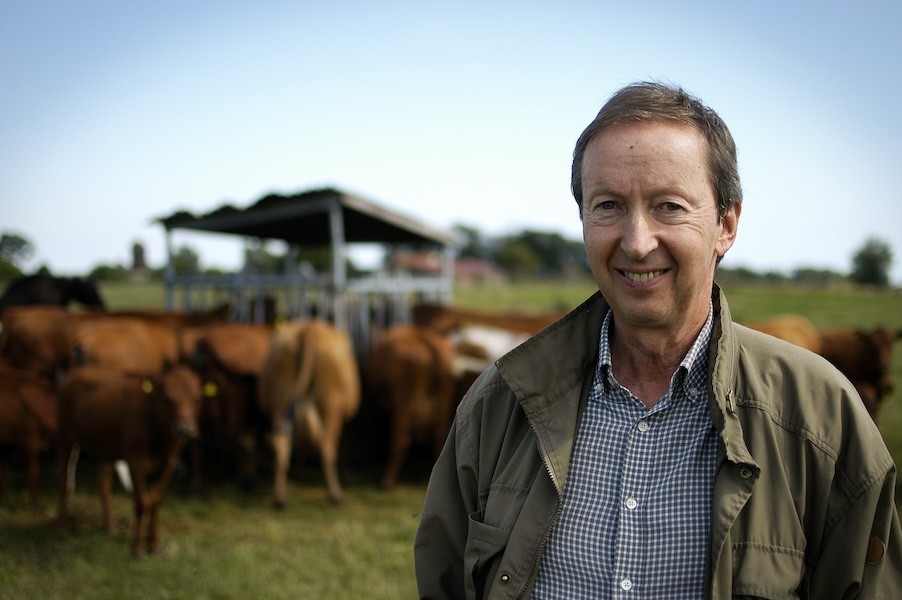Filip Hráček / text /
Welcome to the superstar economy (you’re not going to like it)
200 years ago, if you were a signer with any decent skill, you could probably get paid for your singing. You didn't need to be an international superstar. You didn't even need to be a national star. As long as you could sing better than most of the people in your village (and possibly a few other villages around), you could get paid.
200 yeas ago, a superstar singer couldn’t dominate the market for singing, simply because they didn't have the technology to do so. They couldn’t tour by plane, they couldn’t publish a record, and they couldn’t release their album on Spotify — this is because none of these things had been invented yet.
Contrast this with today. Even if you’re the the absolute top singer in your village, and a dozen neighboring villages, you won’t be able to make a living as a singer. Because you’re not competing with your immediate surroundings these days. You’re competing with Taylor Swift, Ariana Grande, Billie Eilish, and Beyoncé.

Good luck.
Superstar economies
The economics of superstars, first examined by Sherwin Rosen in the early 1980s (PDF), make “relatively small numbers of people earn enormous amounts of money and seem to dominate the fields in which they engage.”
This may seem like a distant problem for someone who’s not a singer. But superstar economics are now everywhere.
- Who builds houses these days? Instead of local builders, it’s mostly big development corporations with the money to buy land, to lobby local governments, to invest in huge, long-term, complicated projects.
- Who builds bicycles these days? Instead of local shops, most bicycles today are designed and built by a handful of large corporations with the appropriate economies of scale.
- Who are the instructors in professional development? Instead of local experts in the field (who teach from local community spaces or 1:1), more and more people turn to online learning, where a single superstar instructor can teach hundreds of thousands of people in parallel.
- Who makes websites for local businesses these days? Instead of local software shops, it’s Facebook, Google, or Wix.
- I could go on but I’ll leave that as an exercise to the reader.
Aside: I realize that some of these examples might be partly attributed to simple capital accumulation. But not wholly. The late 19th century, for example, also had people and corporations with a lot of accumulated capital, yet that era didn't see the same issues we see today, with ordinary people and companies having to compete with superstars from around the globe.
Technology has been making professions more and more “superstar-y” at least since the invention of the printing press. But the pace has increased significantly in the 20th century, and I’d argue it’s faster still since the days of Sherwin Rosen and his first explorations of superstar economies in 1981.
Farming in Switzerland
There’s one surprising profession that has been hit quite hard by superstardom: farming. Thanks to refrigeration and international logistics, you can get agricultural products of better quality and cheaper if you buy from abroad. There’s just no way someone in the EU or the US can produce, say, palm oil of the same quality as Indonesia or Malaysia and yet be even roughly in the same price range. Same with bananas, rice, coffee. And — if there were no government subsidies — same with wheat, corn, grapes, apples, tomatoes, onions or potatoes.
Like with singing, this was simply not an issue 200 years ago. If you were a decent farmer in Europe in the 1800s, you simply didn't have to worry about tomatoes from (present-day) Turkey. Your tomatoes didn't compete with overseas tomatoes, no matter how good or cheap that overseas produce was — because it either stayed overseas, or became an expensive specialty item if transported.
With the advent of container ships and cheap international shipping, this changed, and countries had to react. Agricultural subsidies are some of the largest items on EU’s budget every year. If this was not the case, Western Europe would have had almost no agriculture by now. Sure, there would be artisanal potatoes from Provence or whatever — for the rich and the environmentally conscious — but everything else would be gone. There’s just no way growing normal staple foods could be economically viable.

Of course, most countries understand that losing the whole agricultural sector is a terrible idea. In crisis, such as in war, you really don’t want to depend on international shipping to feed the populace. But it’s not just geopolitics. Letting local agriculture die also means losing a whole class of people: farmers. And, to a lesser extent, it means losing a whole segment of national culture: the countryside.
This is why there’s still agriculture in Switzerland. Think about it. From the economic standpoint, it makes absolutely no sense to grow pretty much anything in Switzerland. The land is simply not fertile enough, the workforce is incredibly expensive, and you’d get a lot more GDP from your farmers if they were making chocolate or watches instead. Producing a kilogram of potatoes in Switzerland must be significantly more expensive than importing it. But for the aforementioned reasons, the Swiss don’t just let local agriculture die. When I was in Switzerland a few years back, I was surprised how healthy their countryside looked. It wasn’t just a bunch of suburbanites living outside the cities and commuting to work every day. There were actual farmers there, and tradespeople. A regular village. (Although very very nice and well-kept, of course. It’s Switzerland, after all.)
How do the Swiss do it? Well, according to a quick internet search, they seem to do it the same way as everyone else these days: they simply subsidize the hell out of local farming. A big chunk of what the bankers and chocolatiers and engineers make goes through their taxes to the farmers. That’s it — no magic bullet, I’m afraid.
Are we next?
The reason I’m harping on about farmers and subsidies is that agriculture was possibly the first sector that was both existentially important (in contrast to singing, for example) and became a “superstar economy”. Affluent nations around the world had to deal with this since the 1990s or so. This is our precedent. We don’t know if subsidies is the best solution to this problem (or whether it’s even a good option) but we do know that most countries have ended up going that route when it comes to agriculture. We also know that it kind of works, and that it’s quite expensive.
200 years ago, it was quite possible to be mediocre at your job and still have a reasonably nice life. Today, it is becoming harder and harder for people who aren’t top performers to simply make do. And remember, by definition, 50% of people are mediocre at their job, or worse. These are not some bottom-of-the-barrel losers. They are literally half of the populace, and even though we all want to believe that we’re not among them — we just might. People can’t all be superstars.

If we want regular people to have a decent life, ideally like the farmers in Switzerland, we should start thinking about ways to make superstar economies work for everyone. I don’t have answers here. I’m only suggesting a topic to ponder, to discuss, and to read about. I truly believe that, if you want to understand the present, and especially if you want to understand the future, you must be aware of superstar economies. Because you’re probably in one.
— Filip Hráček
July 2024
